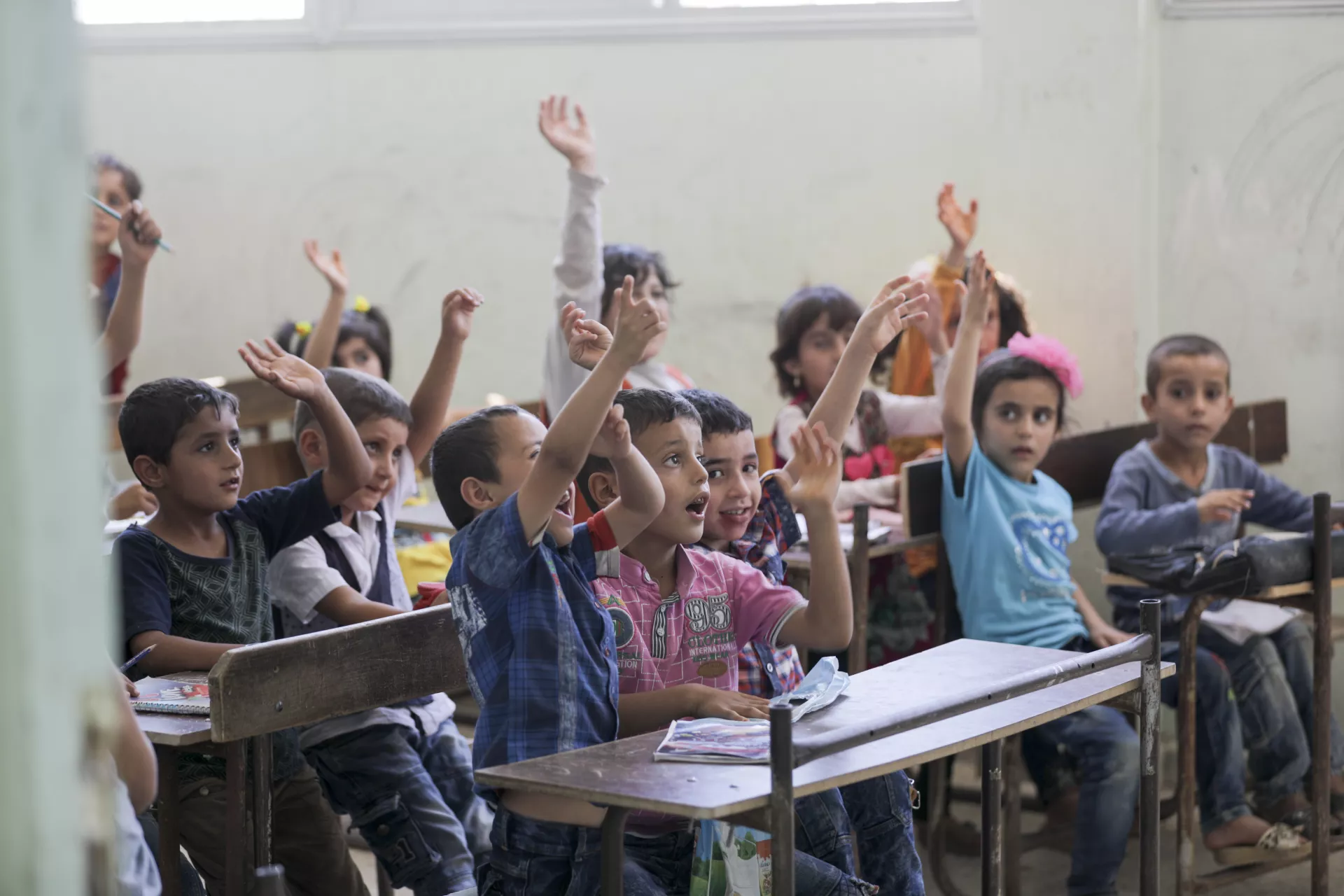A letter from an NGO Education officer in southern Rural Idlib, Syria
''We started our school year amid the uncertainty about a large-scale escalation of violence in Idlib''

We started our school year amid the uncertainty about a large-scale escalation of violence in Idlib. Parents are worried about sending their children to school and some have not even registered their children at all. Yet, students continue to come to the school, I would even say more than last year. We see many pupils who are very eager to be in school again because they were out of school for many months.
Last year, near the end of the school year, conflict forced many of them to flee with their families to safer areas and stopped coming to school. For the many children who were not able to sit their end-of-year exams, they are eager to come back and catch up on what they missed.


We have more students in our school this year because of the number of internally displaced children. The displacement of many families from eastern Idlib to our town meant that in the six schools we oversee there are children from all over Syria.
We have students from East Ghouta, Rural Hama, eastern Rural Idlib and some from Aleppo. They all have been integrated fully into our schools. For children from East Ghouta and other locations, we ran accelerated learning programmes to make sure they are ready to catch up when the formal school year starts.
Many parents are very uncertain about the future and what to do. They want to send their children to school but they also worry about an escalation of violence in Idlib. That’s why since it is relatively calm at the moment we try to do as much as we can in terms of learning activities. But still, there is a lot of fear and concern.
There is still a lot of fear amongst us, the children and the parents. An attack on the area will be disastrous; not only a humanitarian disaster but an educational one as well. We still fear for a whole generation.
We are also preparing for the worst. If the situation escalates we plan to move our education activities to the areas where IDPs are congregating.
We won’t stop teaching. We will follow the students to where they go and set up learning activities there.




